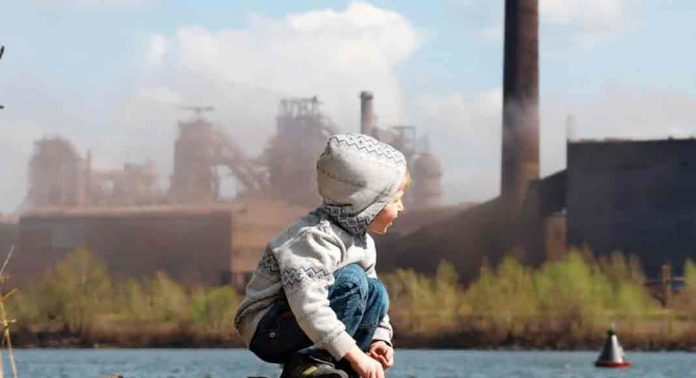According to a study, common air pollutants like small particulate matter and ground-level ozone are linked to worse outcomes after COVID-19 infection, including admission to the intensive care unit (ICU).
The study, which was published on Tuesday in the Canadian Medical Association Journal, looked at 151,105 people aged 20 and up who had a confirmed SARS-CoV-2 infection in 2020 in Ontario, Canada, but were not in a long-term care facility. Before the pandemic, the researchers modeled historical exposure to three common air pollutants: fine particulate matter (PM2.5), nitrogen dioxide (NO2), and ground-level ozone (O3).
They controlled for factors such as date of diagnosis, gender and age, being part of an outbreak, essential worker status, neighborhood socioeconomic status, health care access (including previous influenza vaccination history, previous outpatient visits, and others).
The study found 8,630 COVID-19-related hospital admissions, 1,912 ICU admissions, and 2,137 deaths. According to the researchers, the median times between first diagnosis and hospital admission, ICU admission and death were 5 days, 8 days, and 15 days, respectively.
“After we adjusted for individual and contextual confounding factors, we found that people with SARS-CoV-2 infection who lived in areas of Ontario with higher levels of common air pollutants were at an increased risk of being admitted to the ICU, even when the air pollution level was relatively low,” said Hong Chen of Health Canada, a department of the Government of Canada.
The researchers also discovered an increased risk of hospitalization with chronic PM2.5 and O3 exposure, as well as an increased risk of death from COVID-19 with chronic O3 exposure. These findings add to the growing body of evidence linking air pollution to COVID-19 severity from other countries, including Spain and Mexico, the researchers said.
“Given the ongoing pandemic, our findings that highlight the link between chronic air pollution exposure and more severe COVID-19 could have important implications for public health and health systems,” the study’s authors wrote. More research is needed to determine the mechanisms by which long-term exposure to air pollution may influence the severity of COVID-19.



















![10 Countries With the Best Healthcare in the World [Statistical Analysis] Countries With the Best Healthcare in the World](https://articleify.com/wp-content/uploads/2025/07/Countries-With-the-Best-Healthcare-in-the-World-1-150x150.jpg)









